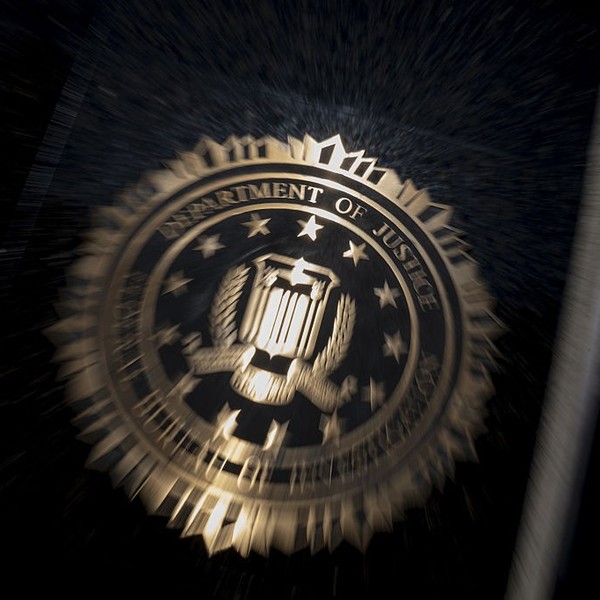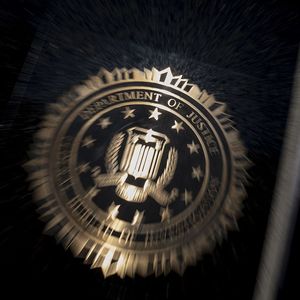The Cipher Brief Threat Conference has been re-scheduled for September 13-15, 2020. This special series of national security briefings has been launched to keep our public-private threat conference community together and engaged on the issues that matter until we can safely gather again.
Conference speaker Christopher Costa is a former intelligence officer and former Special Assistant to the President. He currently serves as Executive Director of the International Spy Museum and is an advisor Mission Solutions Group, a premiere conference sponsor.
ISSUE: There's a disturbing globalization of DISINFORMATION spreading on the internet. The tradecraft and tools to aid in the spread of divisive messages are readily available to anyone, not just nation state intelligence services, but also non-state terrorists and criminals. Addressing today's forums of influence operations demands a reorientation of our counterintelligence priorities, according to our briefer Christopher Costa.
What follows is an edited version of our virtual threat conference briefing.
When the Cold War was thawing in Europe, I saw counterintelligence as both a defensive shield as well as an offensive weapon. As a shield, we detected, we denied, we deterred East Germans from penetrating our secrets. We deterred Soviet KGB officers from penetrating our secrets. That was the Cold War. I want to set that aside
From the late 1990s through 9/11 all the way up to my time at the White House when I worked counterterrorism issues and still in just the past two years, I have unflinchingly suggested that the counterterrorism work of the nation is on a really good path, but I've also warned about a reconstituted ISIS or resurrected Al-Qaeda. And in the aftermath of the January strike on Iranian General Qassam Suleimani, I very much worry about retaliation by Iranian proxies.
But my thinking has come absolutely full circle and I now believe that the threat disinformation poses to the United States, to our democracy is far more potent than the threat of terrorism.
Terrorism is clearly not an existential threat to the United States, but disinformation is a threat to our democracy.
The US National Counterintelligence Strategy published last year, talks about the need to defend American democracy against foreign influence. Let those words sink in for a moment, because the stakes are high. Now we’re seeing a disturbing globalization of disinformation on the internet, and it’s happening on an industrial scale. In fact, there's a democratization of spy tools, techniques, tactics, and procedures that are available to nation states as well as criminals and terrorists. This is not my idea. I've read these accounts from counterintelligence professionals. We've shared some shoptalk on this problem that we're dealing with. It requires a reorientation, if you will, of our counterintelligence priorities.
That is happening. It’s on a positive trajectory. Let me go back to that counterintelligence strategy and use some of the words from the very strategy that was published. “Using false U.S. personas, foreign intelligence entities develop and operate social media sites in other forums to draw the attention of U.S. audiences to spread misinformation, to spread disinformation”. Importantly, and we don't talk a lot about this, but their goal is also to deliver divisive messages.
That may seem a bit alarmist but let me take you back to some intelligence history. Major General Oleg Kalugin is a former general in the KGB and the late Sergei Tretyakov, is another former friend of mine and one-time adversary. They both recalled incessantly in their speaking engagements and in some of their writings, that the Soviet intelligence apparatus prioritizes sowing disunity ahead of - and undermining our democracy ahead of - classic foreign intelligence operations. In other words, recruiting Americans.
Disinformation has always been a high priority. Russian President Vladimir Putin himself is a former KGB officer. What all of this means for this discussion is that there is a shadowy arc of continuity between the former Soviet Union's KGB and their menu of active measures in today's disinformation campaigns. And that's an important point. For example, just last year a unit was revealed by the media. The number 29155 doesn't mean much to us on its own, but apparently that is an organization that is handled by the successors of the KGB, the Russian Security Services to sow disinformation. But that's not all. They're also involved with assassination planning, reportedly.
Even coronavirus content is thought to be a target of disinformation, some of it coming out of the Kremlin, but also from the Chinese, and the Iranians. While a pandemic plays out on the world stage, it's important to note, that Russia is also increasing its efforts to sow chaos and flame even racial tensions in the United States. That's part and parcel of the suite of capabilities to undermine our democracy in light of the 2020 elections. Imagine Russian Security Services working with white supremacists.
The broader point is that we are polarized as a society and people gather information by what I call ‘online tribalism’ or ‘digital tribalism’. Americans go to the sites that reinforce their own world views in many cases. Of course, that's a generalization, but that's the problem. Disinformation can deliberately target those populations and sow more disinformation.
Again, it is not just nation states that we have to consider, there is also a threat from non-state actors. In 2014, ISIS, a non-state actor, launched a disinformation campaign that went viral in unparalleled ways. In short, they choreographed a multi-dimensional online disinformation campaign to suggest to the Iraqi Security Services that they were bigger than they were in terms of capabilities and numbers. They used bots, Twitter accounts, they even used self-styled smartphone apps. These were non-state actors taking disinformation and applying it tactically or operationally on a battlefield.
We have to be concerned. FBI Director Christopher Wray mentioned this to Congress in February. We still have to be aware that the Chinese and other state actors will continue to look for vulnerabilities and will continue to take advantage of some of our weak spots using social media to do it.
Without belaboring the point, I want to make a final pitch on the importance of counterintelligence. It was important during the Cold War and what we learned during the Cold War needs to be applied today. The good news is that I believe it is happening. I believe the trajectory of counterintelligence is on good footing. And I believe that it will be the coin of the realm. That's playing out at FBI headquarters and elsewhere in the U.S. counterintelligence enterprise. But there's more work to be done.
There needs to be a renaissance in counterintelligence efforts. We have to recognize that we need to dust off some of those lessons learned during the Cold War and adapt what we learned from counterterrorism post 9/11 because there are some lessons that can be applied from counterterrorism and building a bureaucracy or an establishment that really did a great job of keeping the nation safe. What are those lessons that we can apply? And then how do we update those lessons with our understanding of new technologies and more generally, the idea of artificial intelligence.
A final warning that there's not going to be a 9/11 type event that's going to galvanize a U.S. response to disinformation. It is not going to happen. It is playing out now. It is imperceptible to the public eye. As such, we have to adapt those lessons now and take some key steps on what the nation needs to do. And our Western partners need to be aligned with some of these very basic, but I think important, recommendations.
We really need to increase our investments in open source intelligence. That's the first point. As an aside, while we focus on OSINT and redouble our efforts and investments in open source intelligence, that doesn't mean surrendering our ability to go after those foreign governments that are working against our interests. We need to continue to penetrate foreign intelligence services that are working against the United States, but OSINT investments need to be increased.
The second point is that when we identify a disinformation campaign, the United States needs to debunk that disinformation, needs to flag that disinformation before it goes viral. And we need to do something that is not natural to the U.S. Intelligence Community from my perspective. And that is that we have to call it out and spokespersons need to identify where that campaign is playing out when it is a state actor behind it and then provide the truth and debunk the falsities. We need a more public facing role on this, and I don't know who those actors are in the U.S. government, it might be The State Department, the Global Engagement Center. It almost doesn't matter, but it has to happen in a cogent way.
And the third point, is the idea of public-private collaboration with technology companies and internet providers. That is already happening. It happened with counterterrorism in getting radicalization and terrorist content off the internet, not by the U.S. government taking it down, but working with internet providers very discreetly. We have a first amendment issue. We're always mindful of that.
And finally, in closing, is the idea that this interplay of disinformation in social media is a key counterintelligence challenge for the future. I think the United States and our Western friends and allies are up for this. I think we have, as I said, come completely full circle. Active measures are back in this time and they are really available to anybody that has access to the internet.
What do you think? Engage on this issue by sending your thoughts to Editor@thecipherbrief.com
The Cipher Brief would like to give a huge thank you to our threat conference sponsors, who, like us, are dedicated to keeping these conversations going. A special thanks to our flagship sponsors, R9B and Accenture Security and to our premiere sponsors, Trinity Cyber, Palantir, TransUnion, Mission Solutions Group, Expanse, and Cooley.
Read more expert-driven national security insights in The Cipher Brief














